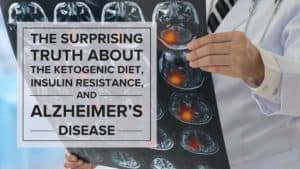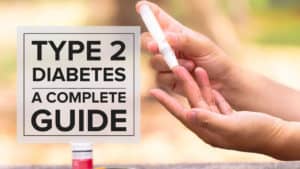So Can Diabetes Be Reversed?
Yes, type 2 diabetes can be reversed if it is caught early enough and treated effectively with lifestyle changes.
There are some misconceptions about whether or not diabetes can be reversed, primarily due to the differences between type 1 and type 2 diabetes.
Reversing (Or Not) The Different Types of Diabetes Mellitus
Type 1 diabetes is an irreversible autoimmune condition that attacks beta cells in your pancreas. Since these beta cells produce a hormone called insulin, type 1 diabetes dramatically reduces insulin production, making it very hard to control your blood sugar levels.
Type 2 diabetes, on the other hand, is a reversible condition in the majority of cases, and is primarily caused by insulin resistance.
According to the statistics, type 1 diabetes is less common (5-10%), typically occurring in younger people, while type 2 diabetes is more common (90-95% of cases), and typically occurs later in life.
So while 5-10% of cases cannot be reversed, the vast majority can be reversed. However, this relies on effective treatment early on.
In this article, we’ll explore the causes of type 2 diabetes, touch on what happens if you don’t reverse type 2 diabetes, and take a look at 5 evidence-based ways that you can decisively reverse type 2 diabetes and return your blood glucose (blood sugar) levels to normal.
How Type 2 Diabetes Happens
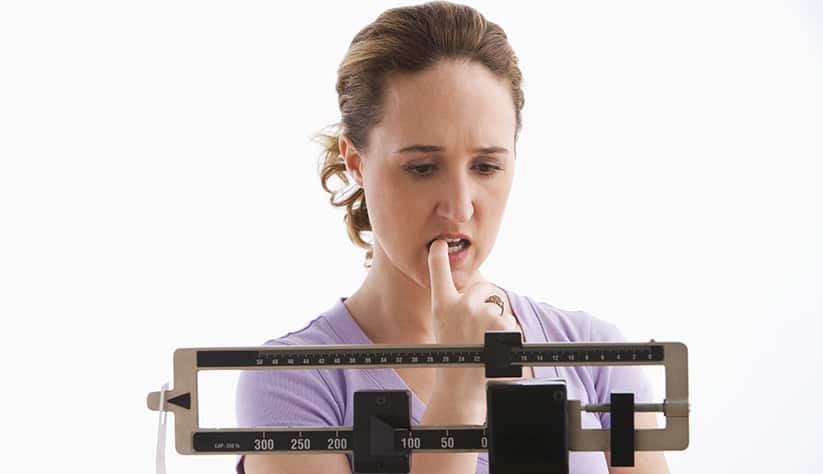
The vast majority of symptoms and complications of type 2 diabetes are caused by a condition called insulin resistance, caused by the accumulation of excess fat in tissues that are not designed to store large quantities of fat, namely your muscle and liver.
This accumulation of fat most often results from the Standard American Diet, a low-carbohydrate diet, a Paleo diet, a ketogenic diet, or a diet containing artificial sweeteners.
In addition to your diet, a sedentary lifestyle is also associated with excess fat in your liver and muscle.
In its early stages, type 2 diabetes is referred to as “non-insulin-dependent,” when beta cells in your pancreas are able to secrete sufficient insulin to counteract insulin resistance.
In later stages, type 2 diabetes can become classified as “insulin-dependent,” when beta cells become compromised in their ability to secrete insulin.
What Happens If You Don’t Reverse Type 2 Diabetes
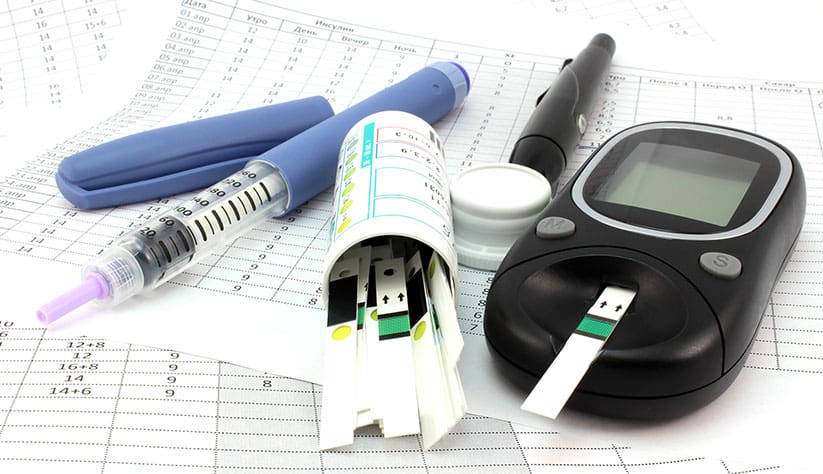
If left unmanaged, type 2 diabetes can directly lead to significant weight gain, and drastically increases your risk for metabolic syndrome (a combination of heart disease risk factors including high cholesterol, high blood pressure, obesity, and others).
Complications from diabetes can also include:
Secondary Complications
Type 2 diabetes also drastically increases your risk for other diseases, with one study indicating that people with type 2 diabetes spend 3 times more on medical bills than non-diabetic individuals.
These indirect complications can affect your arteries, liver and muscles, kidneys, and ovaries, and also increase your risk for various neurological and brain disorders.
The list of possible secondary complications includes, but isn’t limited to:
Insulin-Dependent Type 2 Diabetes | Being Aware of the Point of No Return
If type 2 diabetes is reversed, many of its complications and risks will go away. However, if left untreated for long enough, type 2 diabetes can transition to “insulin-dependent” type 2 diabetes.
When you have type 2 diabetes, beta cells in your pancreas are forced to overproduce insulin to counteract increasing insulin requirements in your liver and muscle. After many years of overproduction, beta cells eventually lose the ability to produce insulin.
In this case, your body will require injections of external insulin applied through a pen, syringe, or pump, even if you reverse insulin resistance using your food as medicine.
5 Research-Backed Ways to Reverse Diabetes
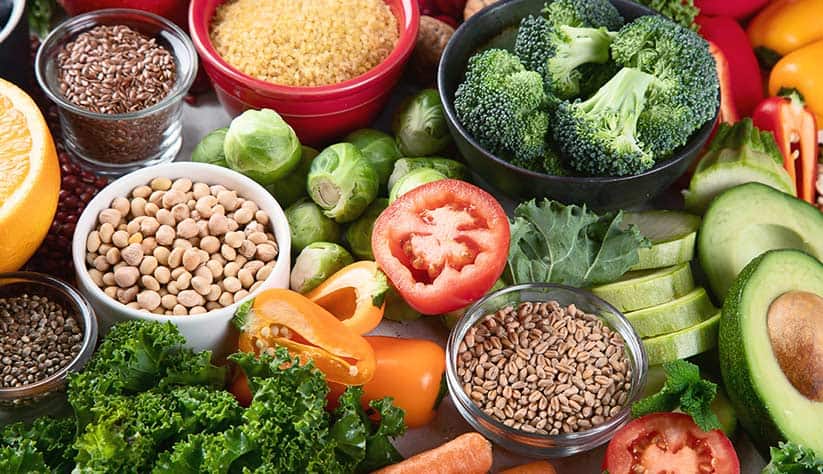
The good news is that there are multiple, evidence-based steps that you can take to reverse insulin resistance, high blood sugar levels, and type 2 diabetes effectively, and almost all of them are sustainable, positive, long-term lifestyle changes.
Adjust Your Diet | The Most Powerful Prevention and Reversal
The most important factor in the development of insulin resistance is your diet, and as a result, adjusting your diet is the most powerful way to reverse type 2 diabetes.
Eliminating refined sugars and artificial sweeteners is a good start, but the best lifestyle to reverse insulin resistance and get your blood sugar levels back to normal is a low-fat, plant-based, whole-food diet. This isn't a 'very-low-calorie diet' and doesn’t require strict portion control or calorie restriction. Instead, it focuses on foods that increase your insulin sensitivity and blood glucose control.
If you’d like to see how to start taking control of your blood sugar levels with your diet (and experience healthy weight-loss along the way!) you can explore our definitive diabetes diet guide.
Myth Busting: There has been a recent trend in diabetes treatment to recommend high-fat, low-carbohydrate diets like the ketogenic diet. While a low-carbohydrate diet can have positive short-term results like weight loss and slightly lower blood sugar levels, in the long run, these diets actually worsen your diabetes health. See our article on debunking these myths of a low-carbohydrate diet (like the ketogenic diet) to learn why.
Daily Movement | A Positive Feedback Loop
When combined with dietary changes, increasing your exercise and daily movement has a positive feedback loop. More activity means your muscles can burn fat and glucose more efficiently, which reduces the amount of both in circulation.
Ultimately, sustained lifestyle change to integrate more movement stimulates mitochondrial biogenesis, which accelerates the process of reversing insulin resistance and type 2 diabetes.
Myth-busting: With enough exercise, I can eat as much as I want, right? Unfortunately not. A poor diet can outpace any amount of exercise, no matter how frequent or intense. Even world-class athletes can end up with insulin resistance and type 2 diabetes, so changing your diet is necessary.
Intermittent Fasting | Your Body’s Natural Recycling Program
Humans are adapted to sustain themselves over long periods without eating, leftover from times when we were hunter-gatherers. During periods of intermittent fasting (usually 16 hours or 24 hours), your body starts a process called autophagy to ensure that cells can still function.
During autophagy, your body burns excess fat, proteins, and old cells, a sort of internal recycling program.
Studies have shown that regular intermittent fasting can lead to weight loss, reduced insulin resistance, and better cardiovascular health, along with other factors like improved neurological activity, and improved liver health.
Myth busting: I can drink diet sodas and diet energy drinks while intermittent fasting, right? While the answer to these questions is technically yes, you can learn why these diet sodas and diet energy drinks are counterproductive to your intermittent fast (along with some recommended beverages) from our friends at Amla Green.
A Brief Note on Weight: Healthy Weight Loss | The Combination of All Three
One of the most common recommendations for people who have diabetes is weight loss. But simply telling someone "lose weight" isn't enough to lose diabetes, because you have to make sure that weight loss is responsible and sustainable.
That means avoiding a very low-calorie diet, and extreme lifestyle adjustments like extended fasting, excessive exercise, or dangerous weight loss supplements, which can cause blood sugar fluctuations and other medical complications.
That's why we've laid out the three methods laid out above, which will help you reach your weight loss goals and your target blood sugar without extreme changes.
Medicines | Common Pharmaceuticals and Natural Alternatives
During the early phases of a diabetes diagnosis and diabetes treatment, it may be necessary to take diabetes medication to maintain your blood sugar levels in a healthy range.
Metformin is one of the most widely prescribed diabetes medications to treat type 2 diabetes, but one of the most powerful evidence-based natural alternatives is Indian gooseberries, known as amla.
Amla berries can lower your blood sugar levels as much as the leading medications and has potent cholesterol and blood pressure lowering effects as well. The best part? Unlike pharmaceutical diabetes medication, these berries have zero side effects.
Myth busting: If there’s medication for diabetes, why should I change my lifestyle and diet around?
Diabetes medication only treats the symptoms (elevated blood sugar levels), not the underlying causes. Until you can reverse insulin resistance, regain blood sugar control, and become insulin sensitive again, you will still be at risk for the complications of diabetes.
Gastric Bypass or Bariatric Surgery | A Last Resort
In extreme cases, gastric bypass or bariatric surgery can provide an interventionary change to your digestive system, adjusting your stomach and intestines so that you feel full with less food or bypass certain parts of your digestion.
In addition to the primary effects of these invasive procedures, one interesting side effect is that patients experienced significantly reduced insulin resistance in their adipose tissue, though researchers theorize this may coincide with the large weight loss often associated with gastric bypass.
Myth busting: Once I have gastric bypass surgery or bariatric surgery, can I continue eating the way I used to?
No. Gastric bypass isn't a one-way ticket to reverse diabetes and enjoy easy weight loss. Bariatric surgery is a major operation that should only be considered as a last resort with the guidance of your physician. And unless it’s accompanied by corresponding changes in lifestyle, the health benefits won’t be sustainable.
What Happens After You Reverse Type 2 Diabetes?

Type 2 diabetes reversal doesn’t happen all at once, but you’ll start to notice changes in the short term.
You’ll need less medication for diabetes management, healthy insulin levels, and you’ll probably experience healthy weight loss and have more energy. You also might notice that your mood has changed for the better, and your immune health has improved.
Ultimately, if you stick with a low-fat, plant-based, whole-food diet and daily movement, you’ll notice long-term improvements in your overall health, fitness, weight loss, and mood, and you will eventually reverse diabetes.
However, one thing that’s very important is making those changes stick, because you’re never “out of the woods” so to speak, especially as the body ages. The same lifestyle changes that caused type 2 diabetes can cause them again, even after you reverse diabetes.
Hopefully, this shouldn’t sound scary. We believe that the benefits of a proper diet and daily movement are positive and self-supporting. You won’t need medication anymore, struggle with blood glucose control, or have to fear for your health. And when you maintain good base health, a “red-light” meal every once in a while won’t be dangerous.
Still, we understand that this can be a significant change, and it’s not always easy to make changes and stay committed. That’s why we founded Mastering Diabetes.
Coaching to Help You Reverse Insulin Resistance
At Mastering Diabetes, we have a comprehensive coaching program based on years of research that has helped hundreds of people reverse insulin resistance, achieve better cardiovascular health, and reverse diabetes (whether that's prediabetes or type 2 diabetes).
There's a reason that so many people are talking about their "A1c Miracle". It's because this method really works.
In the program, you can get access to hundreds of articles, recipes, and tips on how to eat healthily and reverse insulin resistance. And even better, you can get coaching from diabetes experts, either in group or one-on-one sessions, to help elevate your diabetes care and take your steps closer to diabetes remission.
Lower Your A1c and Get to Your Ideal Body Weight ... Guaranteed
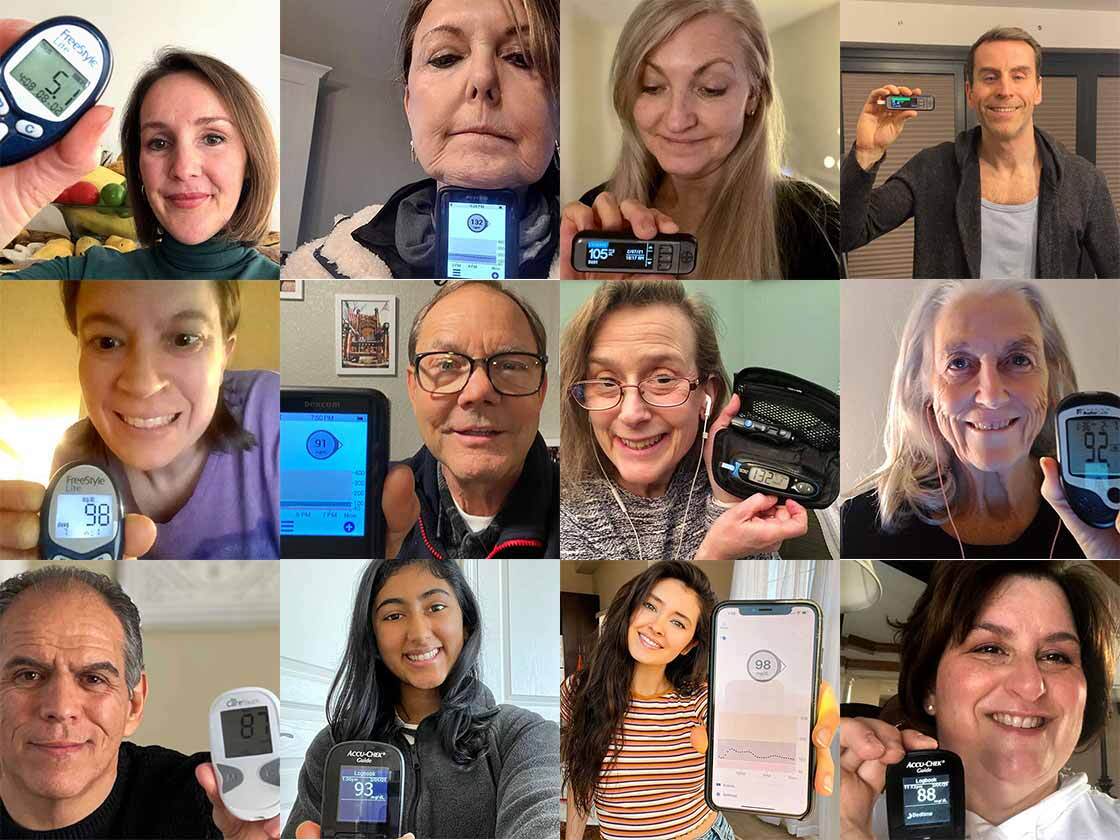
Your results are guaranteed. Join more than 10,000 ecstatic members today
Personalized coaching puts you in immediate control of your diabetes health, helps you gain energy, improves your quality of life, and reduces or eliminates your meds.


